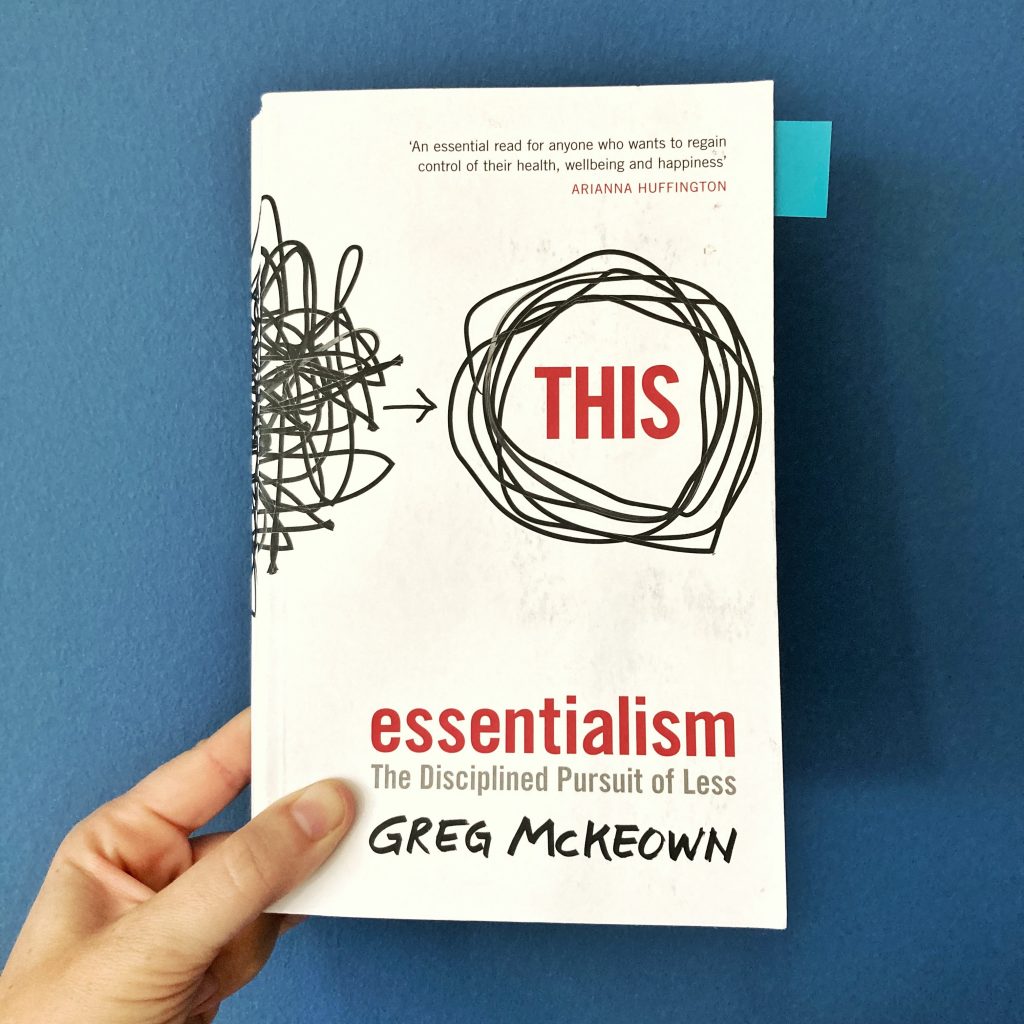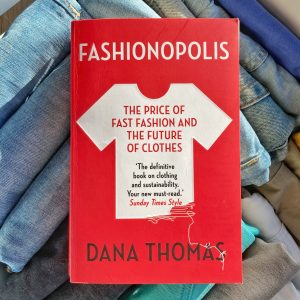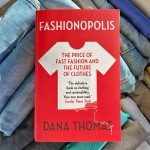i love nonfiction books because the knowledge they provide, makes my thinking bigger.
they add to what i know, they challenge what i think i know and on some rare occasions they literally change my mind.
essentialism by greg mckeown is such a book.
my way to essentialism
but let’s start at the beginning and rewind to the fall of 2018.
i just spent three magnificent weeks in argentina and for the first time in a long time, i felt like myself again.
it had taken me three weeks abroad with almost no internet connection to get there!
and because i finally did feel like myself again – my self does have a rather developed subversive side – my first thought looking at my inbox back at work was :
nope, not happening!
so i did what the modern woman does: i turned to google.
and lo and behold, i am not the only person dealing with inbox trouble.
now, what a surprise…
one thing lead to another and a few months later i found, ordered and instantly read essentialism – the disciplined pursuit of less.
and i can say without hyperbole that my world – and my mind – hasn’t been the same since.
few books have ever had this much of a lasting impact on me.
in my eyes, it’s the business world equivalent to marie kondo’s the life-changing magic of tidying in the decluttering world.
it’s the bible of minimalism.
a real-life exam
when i started this blog, i knew i wanted to write about mckeown’s book.
which meant i had to read it again.
which i dreaded.
how can you dread reading a book you just praised sky-high, you ask? good question.
well, being the perfectionist i am, it felt a bit like an exam to me.
how much and how well did i implement essentialisms’s teachings into my worklife?
did i implement them at all?
or did i just rave about them while i continued with my numerous priorities (yes, plural), still not making a dent into anything, but believing i was in a better place simply because i felt better about it?
the premise of essentialism
essentialism is build around the premise that less but done better gets you to maximum efficiency and contentment.
less but better
greg mckeown
it starts with the assumption that almost everything is unimportant (see chapter 3).
and that every person should reflect on that one thing that sums up what they really want to achieve : their essential intent.
you read correctly.
ONE thing. as in 1!
if that made your heart skip a beat, look at this illustration.

i remember how much this illustration alone struck a chord when i first read the book.
it just summed up what i did so perfectly. (in case you’re wondering i did see myself in the part of the illustration the left, not the right.)
essentialism’s main argument continues that once people know their essential intent, they can more easily determine what’s important in the pursuit of this goal and what’s simply noise.
the rest seems straight forward : cut the noise, focus on the intent and go for it.
now, in theory all this sounds awesome. upon rereading however, the nuance of reality crept in, mainly for the following to reasons.
cutting the noise is hard
mckeown knows this. he spend the entire third part of his book on something he calls “eliminate”.
it’s basically tips and tricks on how to say no to the unimportant without losing your job.
why do i start with the third part?
because i believe that to find your essential intent, it’s paramount to hear yourself think. for that you need silence and space.
or least, i do.
running around responding to other people’s every whim is not quiet. it does not allow for reflection and the distance i feel i need to see the bigger picture.
coincidentally, it’s also where i noticed a stark contrast between my reality and mckeown’s theory.
he talks a lot about trading popularity for respect.
that saying no to what you deem unreasonable or even simply not in line with your essential intent will gain you your peers’ respect in the long run.
in my experience, that did NOT happen.
why?
i can think of a number of explanations:
- i wasn’t (yet) gracefully enough about saying no (a personal explanation)
- there needs to be a strong universally established and acknowledged essential intent to refer to when saying no and that wasn’t there yet (a theoretical explanation)
- the long run takes longer than a year (another theoretical explanation)
- the corporate culture at my work place doesn’t allow for saying no (a ‘simple’ cultural explanation)
- women face more backlash for saying no (a more ‘systemic’ cultural explanation)
in all likelihood it’s probably a little of all of the above. i think. i hope.
renewed hope
but i wouldn’t be me if let this discourage me.
i must however admit that is hard and exhausting to find the motivation day after day to keep going.
also, if i’m being totally honest :
i still say yes too much and too easily.
however, giving up is not in vocabulary and rereading the book gave my a couple of ideas of how to bring the ‘elimination’ part of the process to a new level.
it’s why i am glad it did read it a second time.
having tried and somewhat failed at some ideas i remembered from my first read, i was looking at the same content with different eyes, searching for different things at a different level.
and essentialism did not disappoint. i realised that there is so much more wisdom in these pages that one can absorb in only one (or two) reading(s).
from then on, it’s trial and error. with a book that can keep providing answers as i move through the process.
and a process it is.
finding the essential intent is hard
while essentialism mainly focuses on the business side of life, it can be just as easily transposed to a person’s whole being including their private lives and other interests.
and while i have a pretty clear picture of what my essential intent in the workplace is, thinking about the essential intent overall for my life including the private sphere is a hassle.
turns out i was awesome at the eliminating part in my private life. so much so that there is a lot of space and distance to think.
maybe sometimes a bit too much.
what makes finding the overall essential intent in life so hard, is that to know what you want to achieve, you need to know who you are and what you’re about. what your values are.
what you stand for.
what makes finding the overall essential intent in life so hard for me, is that even though i know all this for me, i feel like it still sends me down the spiraling road of overthinking things.
one of the main reasons for this is that i feel like a lot of the things that i want or that i would like to prioritise, are simply out of my hands.
justice, equality and sustainability to name just a few. how can i – one single person – make a difference in the world?
and just as i write these words i realise that i am already following my essential intent.
i just spelled it out.
on my own blog!
which i created to use my voice and my words to stand for what i believe is right.
life is funny like that sometimes!
a final disclaimer
and all that is what i meant with mind-changing.
it’s why i believe that essentialism should come with a disclaimer : your life will never be the same after reading this book.
but don’t let this disclaimer discourage you or plunge you into an identity crisis.
mckeown makes it sound easy. but it isn’t.
it’s hard work. it’s a lot of unanswered questions.
it’s a process.
but it’s worth it!
who essentialism is for
essentialism by mckeown is for
- idealists who refuse to give up or give in,
- dreamers who still believe they can have it all,
- people who feel overwhelmed by their lives or certain aspects of it,
- those who value efficiency above all, and/or
- those who are serious about minimalism and want to take it to the next step.
feedback
now, it’s up to you : have you read essentialism ?
if yes, do you agree with my sentiment?
if not, did this review help you to make a choice whether you should read it or not?
please let me know in the comments.
idealistically yours,
the simps














